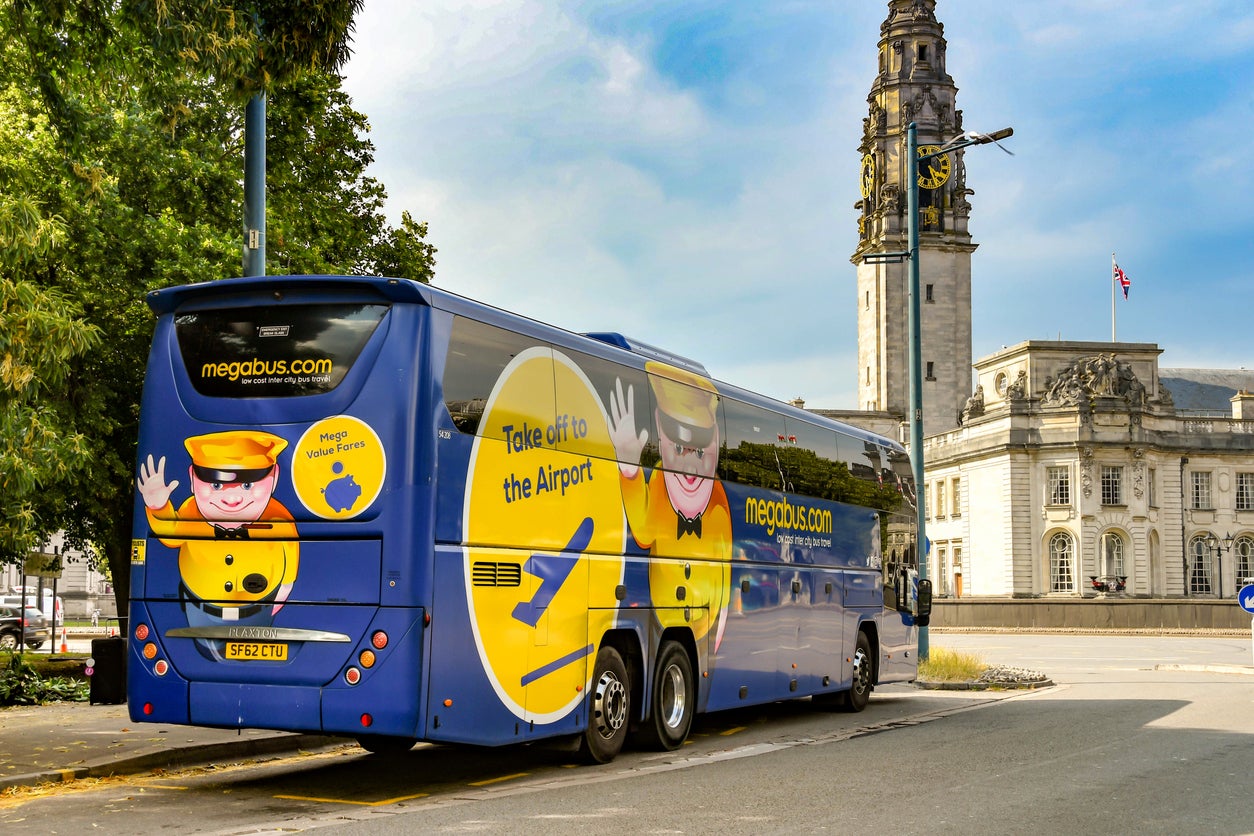National Express and Stagecoach in merger talks
Two UK bus giants could combine to cut costs and tackle ‘green threat’ from FlixBus of Germany

The UK’s two leading long-distance coach companies may merge to cut costs, recover from the coronavirus pandemic and tackle fresh competition.
National Express says it is pursuing an all-share deal with the Stagecoach Group – which is the largest UK bus operator, and whose brands include Megabus.
Both National Express, based in Birmingham, and Perth-based Stagecoach have been hard-hit by the Covid crisis, with complete shutdowns stretching to months. When operations restarted, safety measures kept capacity down.
As they began their recovery, a German competitor, Flixbus, announced it had secured funding of £470m and launched a wide range of UK services – with fares starting at £0.99.
The board of National Express has confirmed it is in discussions with Stagecoach “in relation to a possible all-share combination”.
Stagecoach shareholders would receive 0.36 new National Express ordinary shares for each Stagecoach ordinary share. As a result they would own about a quarter of the combined group.
The deal represents an 18 per cent premium on Stagecoach’s current share price.
A stock exchange announcement from the boards of each company said they believe a merger “would be a strategically compelling proposition with significant growth and cost synergies”. Examples include “National Express Coach utilising Stagecoach’s well-located depot network to run and maintain its coach operations”.
Merging the operations is expected to cost £20m in each of the first two years, with the prospect of saving at least £35m annually within three years.
Sir John Armitt, 75, who has chaired National Express since February 2013, would step down. Stagecoach chairman Ray O’Toole, 64, who is a former chief operating officer of National Express, would become chair of the new group.
The statement added: “There will be no significant impact on the underlying operations of either National Express or Stagecoach.”
Join our commenting forum
Join thought-provoking conversations, follow other Independent readers and see their replies
0Comments